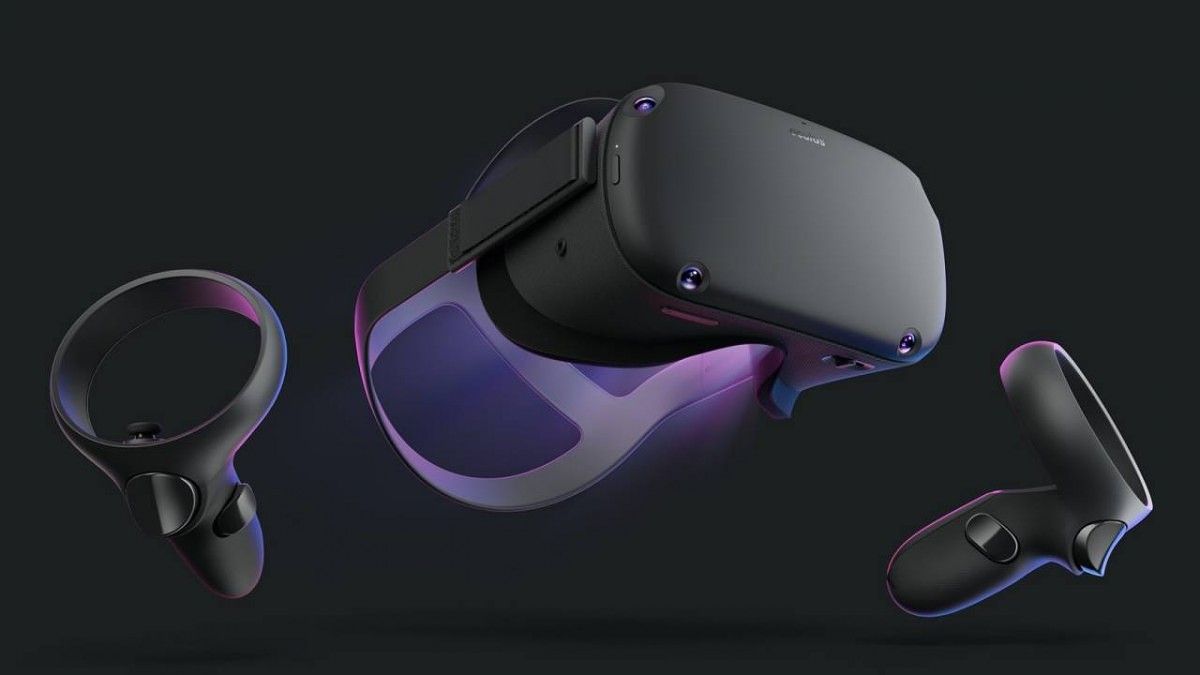In 2014, Facebook acquired Oculus VR Inc. for $2 billion, twice of what it paid for Instagram. In its early days, Oculus's VR efforts were largely focused on PC gaming. But that finally changed under Facebook and the company went on to launch Oculus Go, its first standalone VR headset that didn't need to be tethered to a PC. The Oculus Go was developed in collaboration with Xiaomi. It was powered by the Qualcomm Snapdragon 821 SoC and featured an LCD with a resolution of 1280x1440 per eye and 60Hz refresh rate (and optionally going up to 72Hz). In mid-2019, Facebook followed up with the Oculus Quest, its second standalone VR headset. The Quest is powered by the Qualcomm Snapdragon 835 and has a PenTile OLED display at 1440x1600 resolution per eye and refreshed at 72Hz. Now, a report from Bloomberg has revealed that there’s a third standalone VR headset on the horizon.
According to Bloomberg, Facebook is working on multiple potential successors to the Quest. Some of these models have already reached advanced testing and are said to be smaller (up to 10-15%), lighter, and have a higher image refresh rate than the existing Quest model.
The new headset will offer at least 90Hz of screen refresh rate — compared to the 60 or 72Hz refresh rate of existing models — for a smoother and more realistic gaming experience. Some of the headsets in testing reportedly have refresh rates of up to 120Hz, but the company could cap it at 90Hz for better battery life, the report says. The current Oculus Quest weighs around 1.25 pounds which many users find too heavy to wear for longer periods. The new models currently being tested weigh only 1 pound, the report states.
To accompany the new headset, Facebook is also working on a redesigned controller that is more comfortable and fixes the issue of the current controller where the battery cover sometimes slides off. The new controller will be compatible with the current Quest headset, the report states.
In terms of hardware, the test models are equipped with four external cameras (for comparison, the Rift S has five), six degrees of freedom for looking and walking in any direction, and support Oculus Link to connect to a PC for improved performance. To make the headset more comfortable, Facebook is also considering removing the fabric from the sides and replacing it with plastic like on the Oculus Rift S as well as changing the materials used in the straps to be more elastic.
Facebook had originally planned to unveil the new VR headset towards the end of 2020 at the annual Oculus Connect event, but this may no longer be feasible due to the ongoing effects of COVID-19 on product development and global supply chain. It's unclear whether Facebook will continue to sell the new Quest alongside the old one or if the old one will be discontinued.
Separately, the report also mentions an AR headset that Facebook plans to launch in 2023. The work on software and application is currently underway but the hardware development has slowed down as a result of COVID-19, the report says.
Source: Bloomberg

